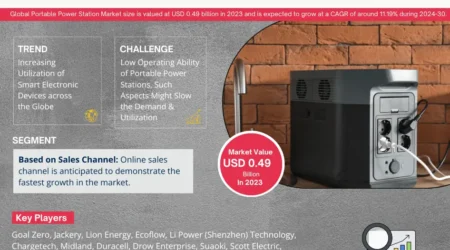Criteria for Choosing the Right Managed Cloud Service Provider in Singapore
Choosing the right managed cloud service provider in Singapore is crucial for businesses looking to optimize their IT operations, enhance cybersecurity, and leverage cloud technologies effectively. This decision involves evaluating several key criteria that align with business objectives, regulatory requirements, and technological capabilities. Here’s an in-depth exploration of the criteria businesses should consider:
1. Expertise and Experience
Selecting a managed cloud service provider in Singapore begins with assessing their expertise and experience in managing cloud environments. Look for providers with a proven track record in deploying and maintaining cloud infrastructure, managing data migrations, and optimizing cloud performance. Experience with industry-specific challenges and compliance requirements adds value, ensuring that the provider understands your business needs.
2. Service Offerings and Scalability
Evaluate the range of services offered by the provider, including infrastructure management, cloud security, disaster recovery, and compliance management. The provider should offer scalable solutions that can accommodate your business growth and evolving IT requirements. Consider whether they offer hybrid cloud options, allowing you to integrate on-premises and cloud environments seamlessly.
3. Cybersecurity Capabilities
cyber security services in Singapore is paramount in cloud services. Ensure that the managed cloud service provider in Singapore has robust cybersecurity measures in place, including data encryption, network security monitoring, threat detection, and incident response capabilities. Look for certifications and adherence to industry standards such as ISO 27001 for information security management.
4. Compliance with Local Regulations
Businesses operating in Singapore must comply with local data protection laws and regulations. Verify that the managed cloud service provider adheres to the Personal Data Protection Act (PDPA) and other relevant regulations. They should have policies and practices in place to protect sensitive data and ensure regulatory compliance across all cloud services.
5. Support and Service Level Agreements (SLAs)
Evaluate the provider’s support capabilities and SLAs to ensure they meet your business’s uptime and responsiveness requirements. Look for 24/7 support availability, proactive monitoring, and rapid incident response times. Clear SLAs should outline performance metrics, resolution times for issues, and penalties for breaches, providing accountability and transparency.
6. Integration with Microsoft Business Applications
For businesses leveraging Microsoft Business Applications such as Dynamics 365 and Power Platform, compatibility and integration capabilities are essential. Consider managed service providers who are recognized for their expertise with Microsoft technologies, such as those in the Microsoft Business Applications Inner Circle Award. These providers have demonstrated excellence in delivering and supporting Microsoft solutions, ensuring seamless integration and optimized performance.
7. Case Studies and Client References
Review case studies and client references to assess the provider’s track record and customer satisfaction. Look for testimonials from businesses in similar industries or with comparable IT requirements to gauge the provider’s ability to deliver results and resolve challenges effectively.
8. Innovation and Future Readiness
Evaluate the provider’s commitment to innovation and staying ahead of technological advancements. Consider their investments in AI, automation, edge computing, and other emerging technologies that could benefit your business. A forward-thinking provider can help future-proof your IT infrastructure and support your digital transformation initiatives.
9. Financial Stability and Reputation
Choose a managed cloud service provider with a solid financial standing and a reputable industry reputation. Conduct due diligence by reviewing financial statements, industry awards, and independent assessments. A stable provider is more likely to invest in infrastructure upgrades, security enhancements, and ongoing training for their staff, ensuring reliability and continuity of service.
10. Cost and Value Proposition
Finally, evaluate the overall cost and value proposition offered by the managed cloud service provider. Compare pricing models, such as pay-as-you-go vs. fixed-rate contracts, and assess the total cost of ownership, including setup fees, maintenance costs, and potential savings from improved efficiency and scalability.
11. Data Governance and Transparency
Ensure that the managed cloud service provider has robust data governance practices in place. This includes policies and procedures for data access control, data sovereignty, and data residency requirements. Transparency regarding how data is stored, accessed, and managed in the cloud environment is crucial for regulatory compliance and maintaining customer trust. Look for providers who offer visibility into their data management practices through regular audits, compliance reports, and transparency about data handling practices.
12. Customization and Flexibility
Evaluate the provider’s ability to customize solutions and adapt to your specific business needs. A one-size-fits-all approach may not align with your unique requirements or industry regulations. Look for a managed cloud service provider in Singapore who offers flexible service options, customizable configurations, and the ability to tailor solutions to meet your evolving IT and business objectives. This flexibility ensures that the cloud services provided can scale alongside your business growth and adapt to changing market conditions or regulatory requirements.
These additional points emphasize the importance of robust data governance practices and the ability to customize solutions, ensuring that businesses can effectively manage their data, meet regulatory obligations, and align cloud services with their specific operational needs in Singapore.
Conclusion
Choosing the right managed cloud service provider in Singapore requires careful consideration of expertise, cybersecurity capabilities, compliance with regulations, support offerings, integration with Microsoft Business Applications, and overall value proposition. By prioritizing these criteria and conducting thorough due diligence, businesses can select a partner who not only meets their immediate IT needs but also supports their long-term growth and digital transformation goals effectively.











Leave a Reply